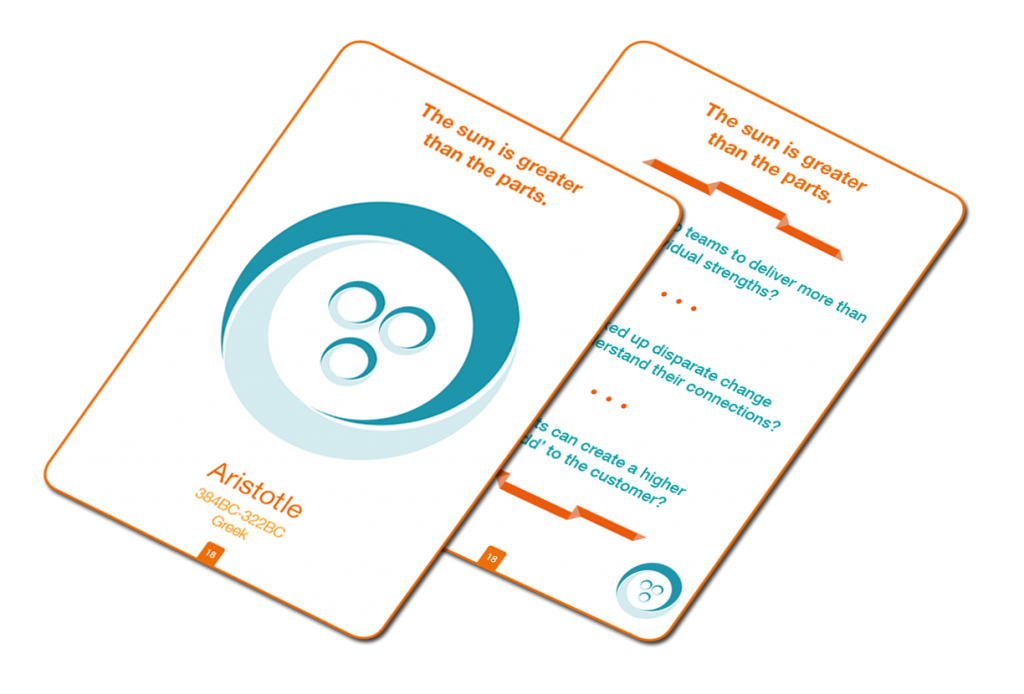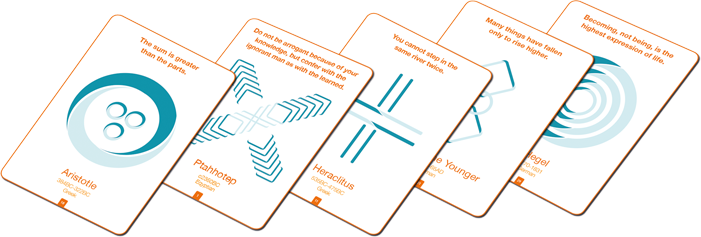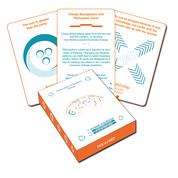
How does Change Management connect to Philosophy?
“Philosophy is to be studied not for the sake of any definite answers to its questions, since no definitive answers can, as a rule, be known to be true, but rather for the sake of the questions themselves”
– Bertrand Russell
Around four year ago, I started to study philosophy at evening classes (albeit with no exams!). I became fascinated with how thinking affects our perception and how both our mind and senses could play tricks with reality. During my studies, I started thinking about how Philosophy and Change Management are linked. As I explored more, I uncovered some great insight that can help organisations make a shift in their thinking, helping them to explore ‘out of range’ opportunities and see problems in a very different light. Philosophy is useful as it can teach us new ways of thinking. Changing our thinking patterns can often lead to better business results.
Writers and thinkers such as Alain De Botton(1) and Anders Poulsen(2) have written about the need for philosophy to connect to business life.
“I think there are some critical areas of intersection and that business can become stronger, by absorbing some of the lessons of philosophy” – Alain De Botton, Author and Philosopher
Poulsen argues, that even though business and philosophy might seem poles apart at first glance, their interdisciplinary potential has for long been largely unrecognised in traditional business schools. And like me, he feels that this needs to change.
For example, Aristotle’s epigram that the sum is greater than the parts; a foundation for systems thinking, also opens up more things to consider such as:
- How will we create teams that deliver more than individual strengths?
- Have we linked up disparate change projects to understand their connections?
- What connections can create a higher ‘value add’ to the customer?”
From Eastern philosophy we have Buddha, who stated: ‘Everything is constantly changing, nothing is really fixed’. This raises challenging questions in business change such as:
- How will we adapt and flow with inevitable changes rather than fighting them?
- How will we adapt our business processes around ever-changing needs?
The modern philosopher Polanyi said: ‘We can know more than we can tell.” This solicits questions such as:
- What tacit knowledge exists in our staff, that we can tap into?
- Which opportunities for change do we need in order to stop analysing and start ‘crafting’?
Indeed, tacit knowledge is often misunderstood by management as just a skill, rather than more joined up deeper knowledge of reality.
I found this exercise so useful that in June 2016, I decided to set up a small team, to create a card game for business. These 36 cards (a magic number!) are designed to create new ideas in any complex business change situation by the insightful questions they ask. These cards are now available from us and also on Amazon. We will also be launching an ‘app’ in few weeks.
The cards would be very valuable for change management teams inside large or complex corporations or for consultants as an additional tool, for asking powerful change questions, in their ‘kit bag’. The front of the card has the name of the philosopher, and their insightful quote. The back of the card expands on the idea, with questions relating to change management.
The cards are printed to the highest specification with a specialised heretic material that give the cards a wonderful feel in an elegant box. You will get joy in flipping these handsome cards, to reveal timely thoughts that challenge us to change our thinking. And you will be surprised how they help human instinct to recognise the power and truth of wise words from both modern and ancient times. A must for any change agents’ tool kit! You can buy them via www.kinetik.uk.com/philosophy/
Ketan Varia with editorial support from Olivia Adebo
References
1) De-Botton, Alan. “Business and Philosophy“, Huffington Post, 2013. Accessed Jan 2017
2) Poulsen, Anders. “Why Future Business Leaders need Philosophy“, Big Think, 2015. Accessed Jan 2017


